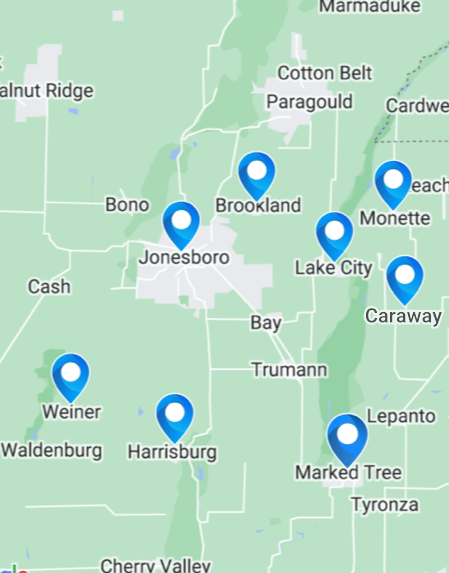Trademark FAQs for Vendors
What is a trademark?
According to U.S. law, “A trademark is any word, name, symbol, or design, or any combination thereof, used in commerce to identify and distinguish the goods of one manufacturer or seller from those of another and to indicate the source of the goods” (15 U.S.C. § 1127). Trademarks may be registered with the U.S. Patent and Trademark Office, but rights are legally granted to any who use such designs first in the commercial marketplace. Some common examples include the Nike “swoosh” logo, Disney princesses and other characters, and college or professional sports logos.
What’s the issue with selling trademarked or copyrighted items?
In the U.S., the law protects the intellectual property rights of businesses and individuals. These protections mean that artists and companies are in control of who can use their intellectual property and who can profit from it. If you create original artwork, you don’t want anyone to steal your ideas and sell them, so having this protection is very important.
An important concept in intellectual property law is “trademark dilution.” When people sell unlicensed versions of famous trademarked property, that property can become tarnished due to unauthorized associations. Most companies will aggressively fight trademark infringement in part because they must—trademarks can expire and fall into public domain if they are not registered and protected. Some companies will send representatives to craft shows or look online for people violating their trademarks. They may send a “cease and desist” letter before taking further legal action.
What are some examples of trademark violations?
Here are some common examples of items that infringe on trademarks and should not be sold (making them for personal use or as gifts is normally fine):
- Hats made to look like Minions, Mickey Mouse ears, or other famous characters
- Paintings or other artwork that incorporate college team logos such as Razorbacks or Red Wolves or famous logos such as Coca-Cola or Harley Davidson
- Stuffed characters like Elmo (from Sesame Street), Olaf (from Frozen), or Mario (from the Nintendo franchise)
- Clothing or blankets incorporating licensed characters
What is the first sale doctrine and how does it apply to handcrafted items?
While copyright and trademark holders do have rights, one limitation on these rights is known as the first sale doctrine (17 U.S.C. § 109), whereby “an individual who purchases a copy of a copyrighted work…receives the right to sell, display, or otherwise dispose of that particular copy.” When applied to crafts, this means that it is generally considered legal to make and sell artwork that incorporates copies (for example, repurposed t-shirts, old comic books, etc.). First sale doctrine does not cover all instances of reuse, however, and is often interpreted by a judge in intellectual property legal cases. An example of this is fabric or appliques that feature licensed characters—these often feature wording on the packages or selvedge line about it being for “personal use only.” Because this is such a legal grey area, we recommend doing extensive legal research or consulting a lawyer before deciding to sell such items.
Why doesn’t the library allow trademarked items at its events?
The library has a legal and ethical duty to uphold the law, particularly intellectual property law (this is one reason why we help people avoid plagiarism with correct citations for research papers). While other venues for artists and crafters may not care about enforcing trademark law at their events, the library cannot and will not take on any legal responsibility for encouraging or allowing intellectual property infringement on our property or at our events. Furthermore, we want to educate our users about these issues in order to help them make informed decisions. Finally, our intention in having these events is to celebrate the unique talents of artists and crafters in our area and promote their original works. If you have items that may violate trademark or other intellectual property laws, we ask that you not sell them at our events. Any person with such items will be asked to leave.
How can I legally sell trademarked items?
The good news is that many trademark owners can and do want artists and crafters to help them propagate their brands. They do so by offering licenses that allow artists and crafters to legally use their logos and other trademarks in goods for sale. An excellent example is A-State University: you can apply for and purchase a license to sell Red Wolves merchandise (except apparel) by visiting the A-State Athletics website.
If you do have a license to sell trademarked items, you may do so at library events as long as you bring a copy of the license or other official documentation to the event.
This document is for educational purposes only and does not constitute legal advice. If you need legal advice for questions about intellectual property law, you should consult a lawyer.
Resources:
http://whatthecraft.com/quickie-guide-to-copyright-law/
http://www.craftsandcopyrights.com/faq.html
http://www.craftslaw.com/copyright-trademark/trademarks/trademark-basics/
http://www.creativeincomeblog.com/selling-licensed-trademarked-work/
https://cyber.law.harvard.edu/metaschool/fisher/domain/tm.htm
